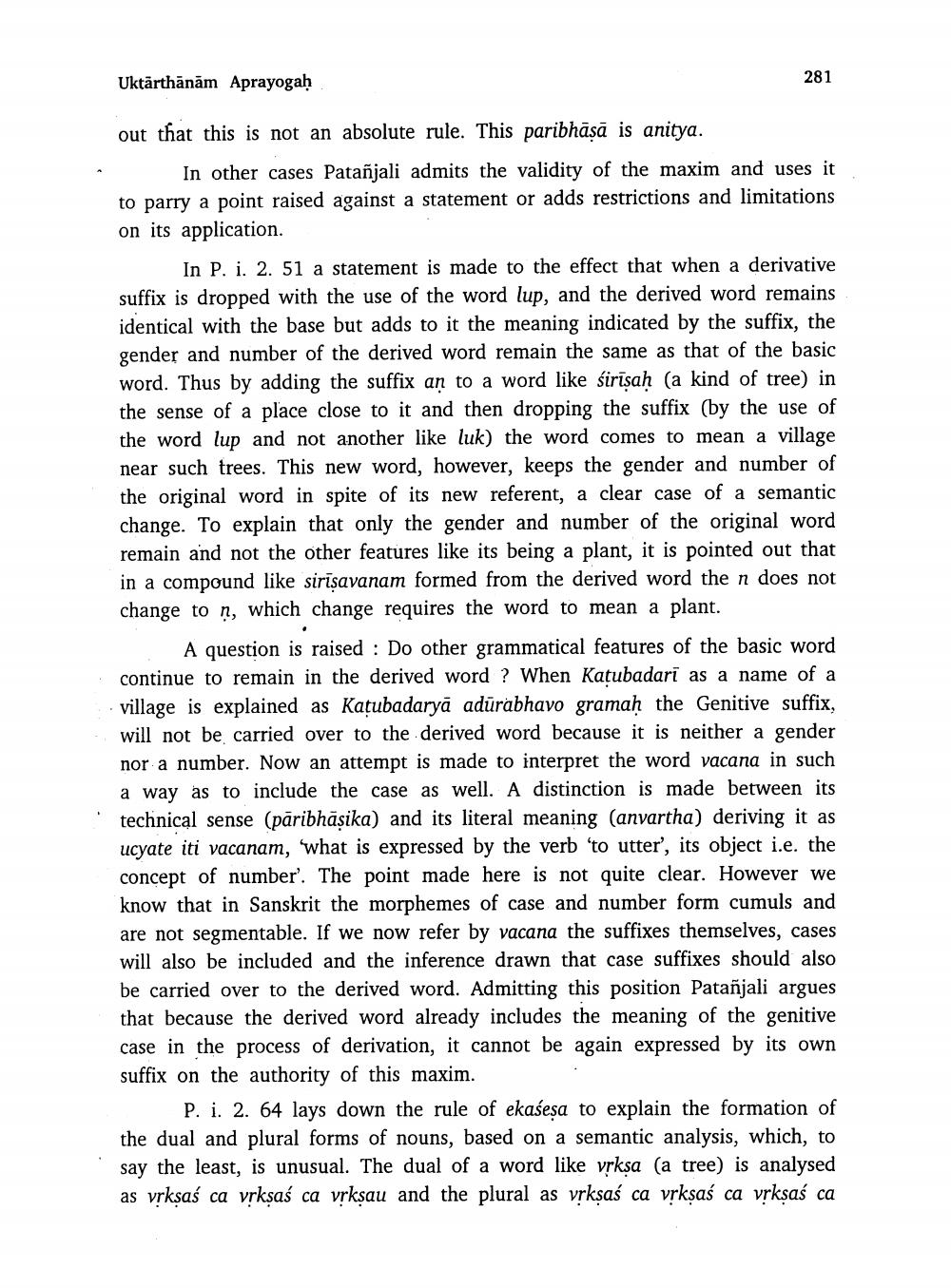________________
281
Uktärthānām Aprayogaḥ
out that this is not an absolute rule. This paribhäșă is anitya.
In other cases Patanjali admits the validity of the maxim and uses it to parry a point raised against a statement or adds restrictions and limitations on its application.
In P. i. 2. 51 a statement is made to the effect that when a derivative suffix is dropped with the use of the word lup, and the derived word remains identical with the base but adds to it the meaning indicated by the suffix, the gender and number of the derived word remain the same as that of the basic word. Thus by adding the suffix an to a word like sirisah (a kind of tree) in the sense of a place close to it and then dropping the suffix (by the use of the word lup and not another like luk) the word comes to mean a village near such trees. This new word, however, keeps the gender and number of the original word in spite of its new referent, a clear case of a semantic change. To explain that only the gender and number of the original word remain and not the other features like its being a plant, it is pointed out that in a compound like sirisavanam formed from the derived word the n does not change to n, which change requires the word to mean a plant.
A question is raised: Do other grammatical features of the basic word continue to remain in the derived word? When Katubadarī as a name of a village is explained as Katubadaryä adûrabhavo gramaḥ the Genitive suffix, will not be carried over to the derived word because it is neither a gender nor a number. Now an attempt is made to interpret the word vacana in such a way as to include the case as well. A distinction is made between its technical sense (päribhäşika) and its literal meaning (anvartha) deriving it as ucyate iti vacanam, 'what is expressed by the verb 'to utter', its object i.e. the concept of number'. The point made here is not quite clear. However we know that in Sanskrit the morphemes of case and number form cumuls and are not segmentable. If we now refer by vacana the suffixes themselves, cases. will also be included and the inference drawn that case suffixes should also be carried over to the derived word. Admitting this position Patanjali argues that because the derived word already includes the meaning of the genitive case in the process of derivation, it cannot be again expressed by its own. suffix on the authority of this maxim.
P. i. 2. 64 lays down the rule of ekaseṣa to explain the formation of the dual and plural forms of nouns, based on a semantic analysis, which, to say the least, is unusual. The dual of a word like vṛkṣa (a tree) is analysed as vrksaś ca vrkṣaś ca vṛkṣau and the plural as vṛkṣaś ca vrkṣaś ca vṛkṣaś ca




